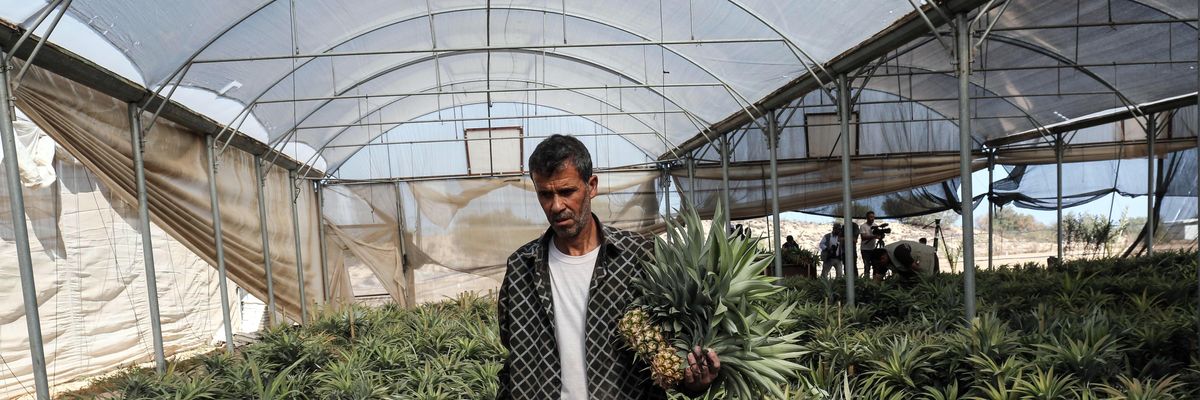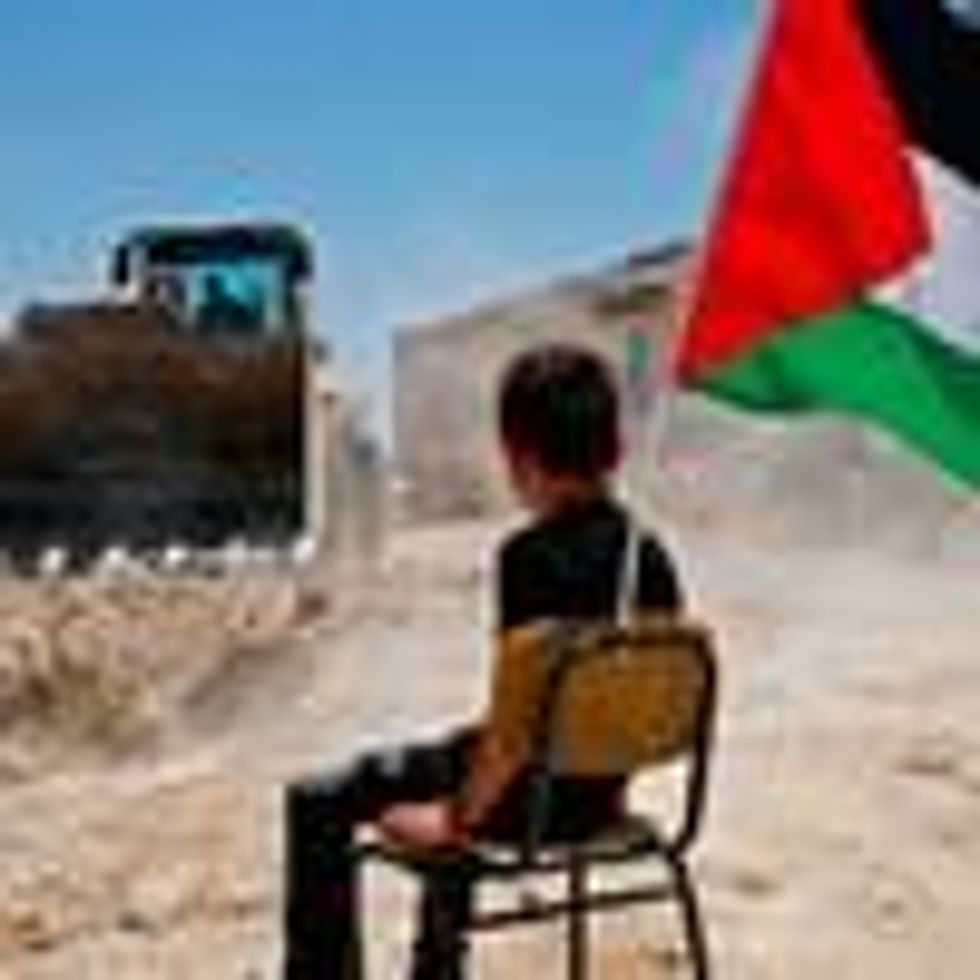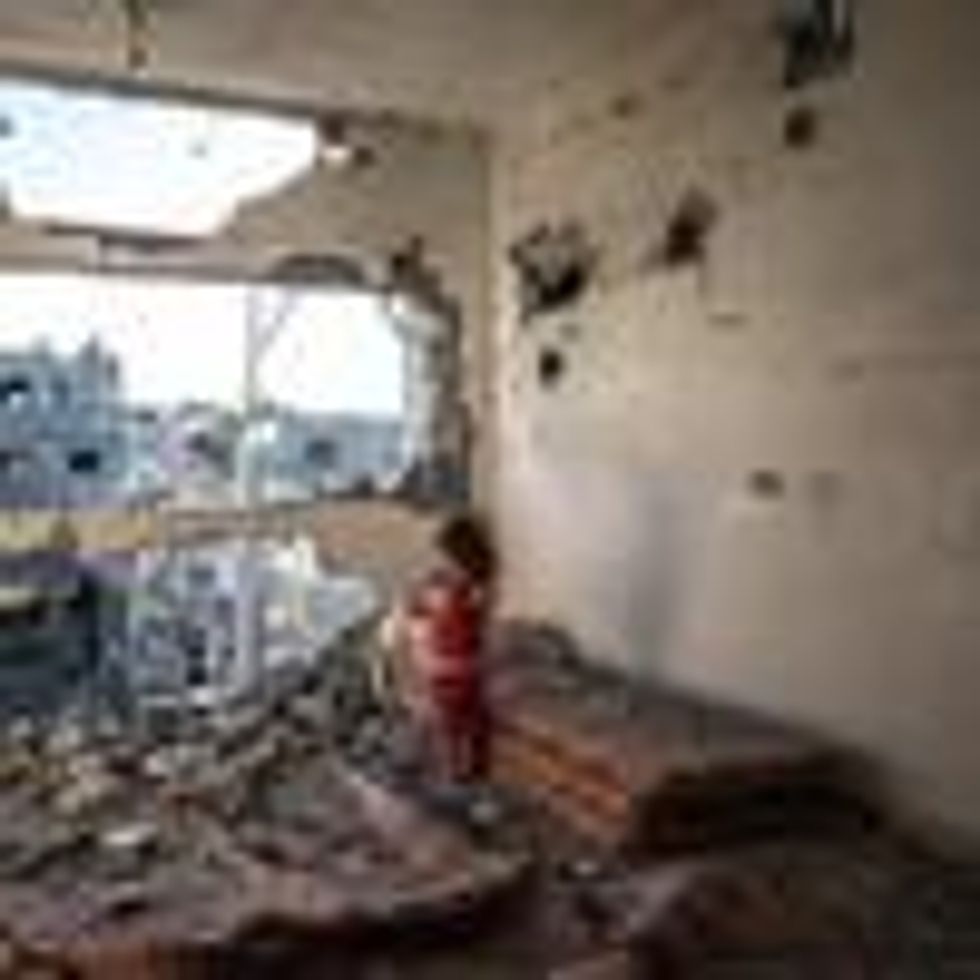Human rights advocates condemned the Dutch government's Wednesday decision to stop funding the Union of Agricultural Work Committees, one of six Palestinian civil society groups that Israel designated as "terrorist organizations" and banned almost three months ago.
"The Union of Agricultural Work Committees (UAWC) is shocked and saddened by the decision of the Dutch government to end its funding for UAWC," the group, based in Ramallah, a city in the occupied West Bank, said in a statement. "With this fateful decision, the Dutch government is not just abandoning UAWC, but Palestinian civil society at large."
"With this fateful decision, the Dutch government is not just abandoning UAWC, but Palestinian civil society at large."
"This is the first time a government ends its funding for Palestinian civil society based on political conditionality," UAWC continued. "By doing so, the Netherlands tarnishes its reputation as a reliable donor and its status of a value-based country that... promotes international law."
As Al Jazeera reported, "The UAWC provides hands-on aid to Palestinians, including by rehabilitating land at risk of confiscation by Israel. It helps tens of thousands of farmers in Area C--the more than 60% of the occupied West Bank under direct Israeli military control, and where most illegal Israeli settlements and their infrastructure are located."
UAWC vowed in its statement to "consider legal steps to challenge today's harmful and unfair decision by the Dutch government, which lacks valid grounds."
The group characterized the move by the Netherlands--its top donor since 2013--as "a breach of trust," and stressed that the decision is likely to "resonate far beyond our organization" given that "it comes at a time that Palestinian civil society is under unprecedented attack."
In October, as Common Dreams reported, Israeli Defense Minister Benny Gantz labeled six leading human rights organizations as "terrorist organizations," effectively criminalizing UAWC along with Addameer, AlHaq, the Bisan Center for Research and Development, Defense for Children International--Palestine, and the Union of Palestinian Women Committees under the apartheid regime's Counter-Terrorism Law of 2016.
Israel's punitive classification was based on "unsubstantiated" claims that those six groups are affiliated with the Popular Front for the Liberation of Palestine (PFLP), a secular political movement whose armed wing carried out attacks against Israeli civilian and military targets from 2000 to 2005, during the second Intifada.
It was swiftly denounced by progressive lawmakers, including U.S. Reps. Ilhan Omar (D-Minn.) and Mark Pocan (D-Wis.), as well as advocates from the Center for Constitutional Rights, Human Rights Watch, and Amnesty International. Soon after, 21 Israel-based groups and a coalition of nearly 300 U.S.-based groups added their voices to the chorus.
A few weeks later, more than 100 philanthropic foundations and individual donors wrote in an open letter that "the targeted assault against six of the leading civil society organizations in Palestine is a blatant attempt to silence and criminalize dissent against the human rights violations of the Israeli government."
Refusing "to be silenced or intimidated," the donors added that "we conduct thorough due diligence processes in our grant-making, including [the] accompaniment of projects. Our funding decisions belong to our boards and our conscience, not the Israeli Defense Department."
Related Content
100+ Global Donors Pen Letter to 'Stand With' Palestinian Rights Groups Outlawed by Israel
Kenny Stancil
The Dutch government announced its decision to stop funding UAWC following an 18-month suspension of financing that the group said "caused serious harm to our organization, projects, and beneficiaries."
In July 2020, Al Jazeera reported, the Dutch Ministry of Foreign Affairs ordered a review of UAWC "following the arrest of two Palestinian employees of the organization. The now-former employees were accused by Israel of being responsible for an August 2019 roadside bomb attack that killed a 17-year-old Israeli girl near the illegal Israeli settlement of Dolev in the occupied West Bank."
"The investigation, conducted by the Netherlands-based Proximities Risk Consultancy group, began in February 2021 and covered the period between 2007 and 2020, during which the UAWC received Dutch funding," the news outlet added. "Its findings were presented on Wednesday at the Dutch parliament."
According to UAWC, the burdensome probe has:
- found no financial flows between UAWC and the PFLP;
- found no indications of organizational unity between UAWC and the PFLP;
- found no indications that the PFLP directs UAWC;
- found no links between UAWC and the armed wing of the PFLP; and
- found no indications that board and staff members have used their position at UAWC for terrorist purposes.
"In addition," noted the group, "the Dutch Foreign Ministry determined that Proximities' research provides no basis to conclude that UAWC has any organizational links with the PFLP."
Al Jazeera, which analyzed the external review, corroborated UAWC's assessment of the investigation.
"All of these findings reflect UAWC's status and existence as an independent organization, which has no political or religious affiliation with any party or political organization," the group said. "It is shocking and deeply troubling that the Dutch government nevertheless decided to end its funding for UAWC. It did so based on a number of 'individual links' that Proximities identified--alleged connections in private capacity of board and staff members of UAWC with the PFLP."
According to UAWC:
When the Dutch government announced its investigation, we immediately stated our clear objection to it being extended to individuals. Based on Palestinian law and basic human rights standards, UAWC cannot (and does not want to) interfere with the personal political beliefs and affiliations of its employees and board members. As also confirmed by Proximities, UAWC has and applies a solid internal policy to preserve its organizational independence and political neutrality within the limitations set by Palestinian law and human rights.
Proximities' investigation has been characterized by a stunning lack of transparency. We only learned at a late stage that UAWC's board and staff members had been included in it. Among Proximities' findings, we identified multiple factual inaccuracies, including several mistaken identities, which we reported. It is not clear to us if and how these corrections have been applied to the final report Proximities submitted to the Dutch Foreign Ministry.
We are shocked that the Dutch government has ended its funding for a leading Palestinian civil society organization and a longtime partner like UAWC, based on alleged individual links resembling the toxic allegations of Israeli groups like NGO Monitor. This decision also contradicts the letter and spirit of reassurances the European Union has provided to Palestinian civil society, when clarifying in a March 2020 letter to PNGO [the Palestinian NGOs Network] that it "does not ask any civil society organization... to discriminate against any natural person based on his/her political affiliation."
UAWC warned that "the Israeli government will seize the decision to further escalate its all-out attack on Palestinian civil society."
"More specifically," said the group, "the decision legitimizes and encourages the Israeli tactic of attacking Palestinian NGOs through alleged political affiliations of their board and staff members."
UAWC pointed out that "all of this is diverting international attention from Israel's theft and confiscation of more Palestinian land and its brutal suppression of the Palestinian people living under military occupation."
Related Content
2021 Was Deadliest Year for Palestinians Since 2014: Israeli Human Rights Group
Jessica Corbett
Ryvka Barnard, deputy director of the United Kingdom-based Palestine Solidarity Campaign, concurred, calling the Netherlands' move "disgraceful" and arguing that it "sets a very dangerous precedent" for other civil society groups repressed by Israel, whose military and settlers killed more than 300 Palestinians in the occupied territories last year.
"The Israeli government will seize the decision to further escalate its all-out attack on Palestinian civil society."
"With increased global attacks on land defenders, Indigenous people, and subsistence farmers, the Dutch government's decision to defund UAWC on such spurious grounds is a major blow and it will go down in history as a real setback for progress," Barnard told Al Jazeera. "UAWC's work over the decades has been vital to support Palestinian farmers in the most vulnerable positions, subjected to horrible settler violence and illegal land grabs."
Emphasizing that UAWC "has been a part of a powerful food sovereignty movement in Palestine and internationally," Barnard said that "these are the people we should be supporting, now more than ever, and instead they are being attacked."
UAWC, for its part, said that "at this critical hour, we call on other donors to maintain and increase their support for UAWC and all Palestinian civil society organizations."
"Don't abandon us," the group pleaded.


